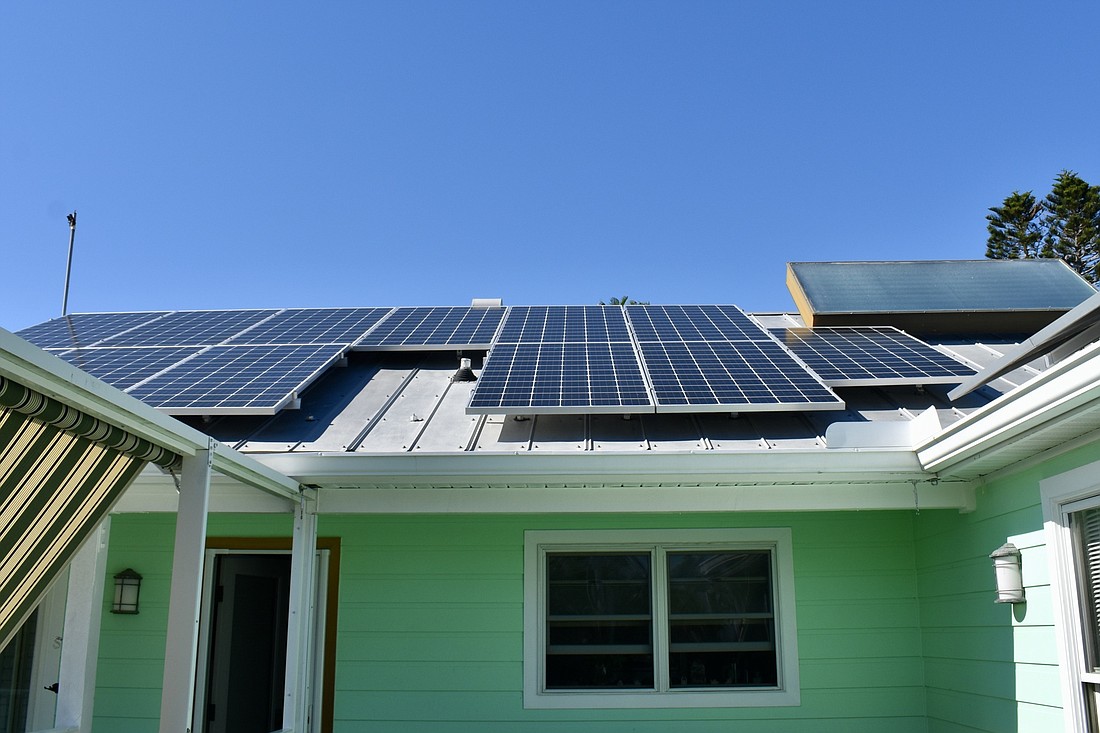- July 26, 2024
-
-
Loading

Loading

Being a new home owner in Harbor Oaks on Longboat Key, I am exploring the possibilities of installing solar panels.
I was told that we must change our roofs soon, at an estimated average cost of $60,000. Why not install solar at the same time and use the federal credits offered?
According to data from the Florida Solar Energy Center (FSEC), the average daily solar radiation in Longboat Key’s area is 5.97 kilowatt-hours per square meter per day.
The Longboat area falls in the highest category for solar resource potential in the state. It receives at least 10% greater solar energy than Miami.

I calculated that if I install 24 panels of 450 watts each, I will generate enough energy to cover my needs during the six months I am in LBK (see net metering below). I have two electric cars.
Florida has several incentives that encourage the installation of solar energy systems. Keep in mind that incentives and policies can change, so I recommend checking with official sources or local solar installers for the most up-to-date information. Some incentives that are available in Florida include:
As a homeowner, you can claim a federal solar tax credit for money that you pay towards installing solar and reduce the amount you owe when you file your yearly federal tax return. (The solar tax credit does not apply to state tax or any local taxes.) The Residential Clean Energy Credit can be filed one time for the tax year in which you install your system using Tax Form 5695.
The credit received is then calculated dollar-by-dollar as a reduction of your federal tax liability, so if you receive $1,000 in credits, you’ll owe $1,000 less in taxes. Once you calculate how many credits you’ve received, you will want to add your renewable energy credit information to a typical Form 1040 while filing your taxes.
Note that a tax credit is different from a tax refund. To claim a tax credit, you must owe taxes to the government, so that the tax credit can cancel out some or all of the amount that you owe.
If you don’t owe any taxes (for example, if you’re retired and don’t have any income) then you wouldn’t receive any money for the tax credit, because you didn’t owe any money to begin with. If you’ve already had those tax dollars deducted from your paycheck, then you can get that money back in the form of a refund, but you’re only getting back money that you’ve already paid. If you do owe less than your total Residential Clean Energy Credit savings for the year that you install your solar system, you can actually “roll over” any remaining credits to the following year, so that you don’t lose the value of those credits.
Lastly, the solar panel federal tax credit can be used against either the federal income tax or the alternative minimum tax, so regardless of how you calculate the taxes you owe, you can be eligible to claim the value of the federal income tax credit for solar.
Each incentive may have specific eligibility criteria and requirements, so it's important to research thoroughly and potentially consult with local solar installers to understand which incentives you may qualify for. Always verify information with current sources before making any decision.
In summary, by installing solar I will spend less money to change my roof, I will not pay for electricity, I will not pay for gas and I will contribute to a greener planet.
Leonhard Korowajczuk is a resident of Longboat Key.